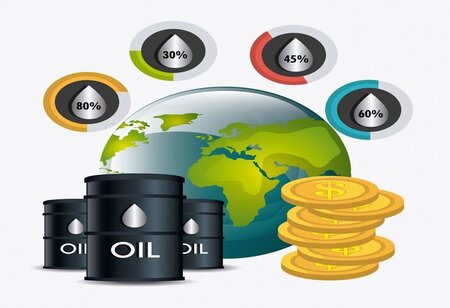
The International Energy Agency (IEA) stated on Wednesday that India's significance as a global supplier of refined petroleum products has grown since 2022. This shift comes as the loss of Russian exports to European markets increased the demand for Asian diesel and jet fuel, pulling them westward. Additionally, the agency reiterated its forecast that India's oil demand growth will surpass that of China by 2027.
However, the IEA's latest report on India's oil market highlighted that while India's role in global oil markets is expanding, energy security has become a critical political priority for New Delhi. This heightened focus on energy security follows the global energy crisis and market disruptions triggered by Russia's invasion of Ukraine.
The report, released during the India Energy Week, forecasts substantial expansion in India's role in global oil markets over the rest of the decade. It attributes this expansion to strong economic growth, population growth, and demographic changes in India.
According to the report, India ranked fourth globally in middle distillate exports and sixth in refinery product exports in 2023, with a volume of 1.2 million barrels per day (mb/d). On the demand side, India is expected to contribute nearly 1.2 mb/d of oil demand growth by 2030, representing over one-third of the projected global gains.
India currently has an annual refining capacity of 250 million tonnes, projected to reach 240 million tonnes by 2030. The country transitioned into a net exporter of petroleum products following significant refinery investments by Reliance Industries Ltd and Essar (now Nayara) in Gujarat between 1999 and 2008.
Reliance primarily exports to the Atlantic basin and Southeast Asia, while Nayara focuses on Africa. Despite challenges, India maintained its export volumes, with 45.2 million tonnes of petroproducts exported from April to December 2023-24, similar to the previous fiscal year.
India's sustained position as a key exporter of transport fuels is expected to continue due to ongoing investments in refining capacity and complexity. However, global product exports are anticipated to decrease slightly to 1.2 mb/d by 2030, reflecting rising domestic demand.

